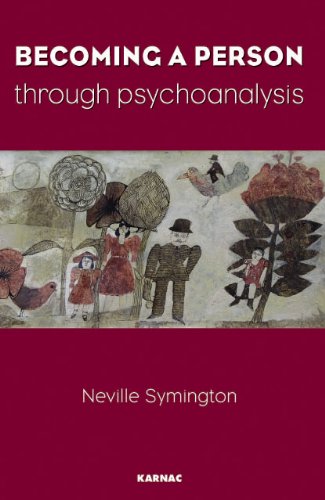The Blind Man Sees: Freud's Awakening and Other Essays

Book Details
- Publisher : Routledge
- Published : 2004
- Cover : Paperback
- Pages : 240
- Category :
Psychoanalysis - Catalogue No : 18424
- ISBN 13 : 9781855759848
- ISBN 10 : 1855759845
Also by Neville Symington
Narcissism: A New Theory
Price £35.99
The Making of a Psychotherapist
Price £33.99
The Analytic Experience: Lectures from the Tavistock
Price £19.95
Our Customers Average Rating
Read all reviews (1)





The papers in this book have been written over a period of fifteen years, and focus in the similarity between psychoanalysis and religion. Symington argues that psychoanalysis can be seen as a scientific religion with Freud as the leader of the movement. He examines the various stages of the journey made by a religious leader from "blindness" to "founding an institution" and finds counterparts in the development of psychoanalysis while drawing examples from Buddhism, Christianity and Islam.
He invites the reader on a journey with him - to examine the human mind, our society, the process of psychoanalysis, science and philosophy. He successfully uses examples from the consulting room to illuminate his arguments. Symington's honest accounts of the search for answers relevant to all of us encourage the reader to think further and deeper than he or she had intended.
'The psychoanalyst examines scientifically the emotional pattern in himself and the other. He can only do this to the extent to which he is self-aware. As what is he is exercising is the inner pattern of his and the other's relationship, then, according to my definition, what he is engaged in is a religious activity. As he is doing it in an orderly way about a determinate subject-matter, he is acting as a scientist. Hence my claim that psychoanalysis is a scientific religion.'
- Neville Symington, from the Introduction
About the Author(s)
Neville Symington is a member of the British and Australian Psychoanalytical Societies. His books include Narcissism: A New Theory, The Making of a Psychotherapist, A Pattern of Madness and Becoming a Person Through Psychoanalysis (all published by Karnac Books); The Analytic Experience, and The Clinical Thinking of Wilfred Bion (written with Joan Symington). He has a private psychoanalytic practice in New South Wales, Australia.
Customer Reviews
Our customers have given this title an average rating of 5 out of 5 from 1 review(s), add your own review for this title.
Amit Fachler on 07/04/2004




 (5 out of 5)
(5 out of 5)
As before, Symington manages to cut to the point in his attempt to adress the reader; the book is lucid and highly readable, without compromising the depth of the ideas it brings about.
Most therapists / analysts would sneer in a dismissing manner when introduced to the notion that psychoanalysis is a religious realm. Or would they? Symington convicingly compares between Freuds spiritual journy and that of Sidhartha, and defines religion (or, rather, being religious) as a belief that rReality consists of more than meets the eye (and in narcissistic terms, more than meets the "I").
In the first chapter, Freuds falling in love with Martha Bernays is considered to be a turning point in his life, regarding the path he will follow from then on. This made wondedr: Is it possible that the significance of that event didnt escape the attention of Kurt Eissler, whos in charge of the Freud Archives and refuses to reveal the young Freuds letters to his fiance (see Gay, 1988)? What might one learn from reading reading those letters? that Freud wasnt always the strict, rational positivist we were meant to believe he was?
Symingtons analysis of the myth of Oedipus is very original and mind boggling. Those two chapters in themselves are good reasons to read the book.
Now a few petty remarks: Why isnt it mentioned that chapters 3, 10 and 7 have already appeared in other books (by Karnac)? Plus, the Hebrew word for psyche is NEPHESH, not nefes (pg.140).
To conclude this review Id like to relate to the last chapter, titled: Anti-Semitism: another perspective. as an Israeli, a jew, and a novice in the field of psychotherapy, I find the topic highly relevant and important. I also found echoes of it towards the end of The Spirit of Sanity, another book by Symington based on a series of talks he gave in the Tavistock Center. Theres a transcription there of the comments from the floor, where someone (Bernardine Bishop, if Im not mistaken) makes the point, in so many words, that Jewish People symbolize the idea of Primal Envy; I find much irony in the fact that by saying such a thing, Symingtons points are proven one by one. It could come as a surprise that such intelligent, scholarly, and honourable people should make such a remark after attending such a disscussion(and I think Karnac showed courage in printing it). Somehow, this Irony doesnt make me smile.










